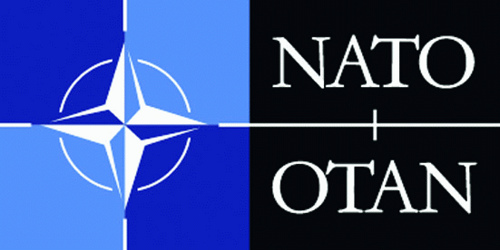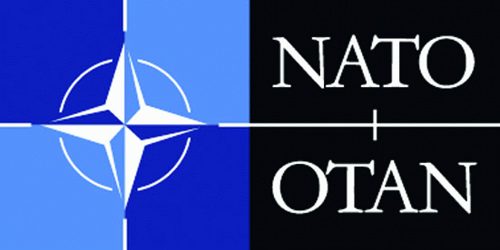If we acknowledge that nothing in life lasts forever, the transatlantic bargain between the United States, Canada, and its European allies appears as close to a permanent international alliance as has ever been fashioned by sovereign independent states. Its appearance of permanence is based on the fact that it is founded on shared values and interests and that the arrangement does not attempt to impose supranational constraints on its members. It respects, honors, and defends their sovereignty and independence.
The question for the foreseeable future may not be whether the alliance will persist, but whether or not it will be of increasing or diminishing value to the participants. It is, after all, the perceptions of the member states, their leaders and publics that will determine how well or poorly the alliance works in the future.
That doesn’t mean NATO won’t face challenges.
The first decade of the twenty-first century revealed how unilateral behavior on both sides of the Atlantic can limit the effectiveness of the alliance. The most important characteristic of the new international system remains the emergence of the United States as the only true global superpower—not omnipotent, but more powerful than any other nation or organized group of nations on this earth. Having been subjected to a brutal terrorist attack on innocent civilians at this critical point in its national history left the United States a more intense and less predictable international actor.
How the United States decides to use its power and influence will have a major impact on the future of the alliance that it still leads. Will it continue to move away from the unilateralism and paranoia that irritated and alienated even its best allies in order to find a way to be a confident and effective leader? The bottom line is that, for the transatlantic alliance to thrive in the future, the United States will have to find ways to balance the advantages of multilateral cooperation and burden sharing against the temptations and attractions of unilateralism.
How the European allies react to US leadership is also important. Most European nations appear prepared to follow a benign US hegemon on most major issues. Will the incredible power and capabilities of the United States convince the allies to follow, even when the United States leads with a clumsy hand? Or will the allies revolt, periodically, individually, or as a group, in response to heavy-handed US unilateralism? In terms of capabilities, will the allies respond to US leadership by creating the capabilities required to make serious military contributions to global military operations? Will they decide to take the “easy road” of concentrating on their soft-power resources and allow the United States to take most responsibility for military capabilities? Or will they build up significant European military capabilities intended to give Europe more leverage over US decisions? If the EU’s European Security and Defense Policy is to be taken seriously in Washington, the EU members will have to demonstrate that the new aspect of the unification process adds capabilities to the transatlantic inventory of security tools, not just institutions and acronyms.
At the national level, for Europe to play its part in maintaining a positive transatlantic dynamic, Germany will be required to find a new balance in its policies that serves two old masters—Europeanism and Atlanticism—while responding to its rediscovered, redefined, and reenergized sense of national interests. France will have to give more weight to the transatlantic dimension of its interests, as President Sarkozy appears to have done. Great Britain will be required to be a “good European” while remaining Washington’s trusted partner.
The attitudes and capabilities the United States and Europe bring to the NATO table in the years immediately ahead will determine whether the alliance will become part of the answer to problems of global instability. If NATO—meaning, of course, the NATO nations—successfully manages the stabilization effort in Afghanistan, it will establish its credentials as a serious and constructive device for multilateral security cooperation for the international community. Of course, failure in any mission the members assign to the alliance could have disastrous consequences for NATO’s credibility and future utility.
In addition, demographic challenges could complicate the alliance’s future. In past years, many Europeans worried that America’s demographic shift away from its Anglo-Saxon population base toward a more Asian and Hispanic one could refocus US priorities in relations with Europe. However, as those changes slowly work their way into the American system, it seems that it is the acceptance of the American system of government that is the key variable, not one’s ancestry. Belief in and defense of democracy, individual liberty and the rule of law is arguably the glue holding the United States together.
Now, there is concern about Europe’s changing demographic base. Native populations in most European NATO countries are declining, and average ages are increasing, diminishing the pool of young individuals available for military service. Smaller European populations will also mean less economic weight and reduced influence on the international scene. In addition, immigration and reproductive trends in Europe are steadily increasing the percentage of the population that is of Muslim origin, raising questions about the values that this growing part of European electorates will follow.
The demographic challenge could, on the one hand, force Europe to cooperate even more closely with the United States. On the other hand, a shrinking European economic and military contribution to the alliance could raise further burdensharing problems. The big question, however, will be whether or not the allies continue to value the importance of democracy, individual liberty and rule of law for the future of their societies. Perhaps the demographic trends will create further pressures for bringing other democracies into the bargain to help defend those values against threats posed by radical groups, unstable governments and authoritarian regimes.
Stan Sloan is the founding Director of the Atlantic Community Initiative. This article is adapted from his forthcoming book, Permanent Alliance? NATO and the Transatlantic Bargain from Truman to Obama (Continuum Books, 2010).
Image: NATO-OTAN_0.jpg

